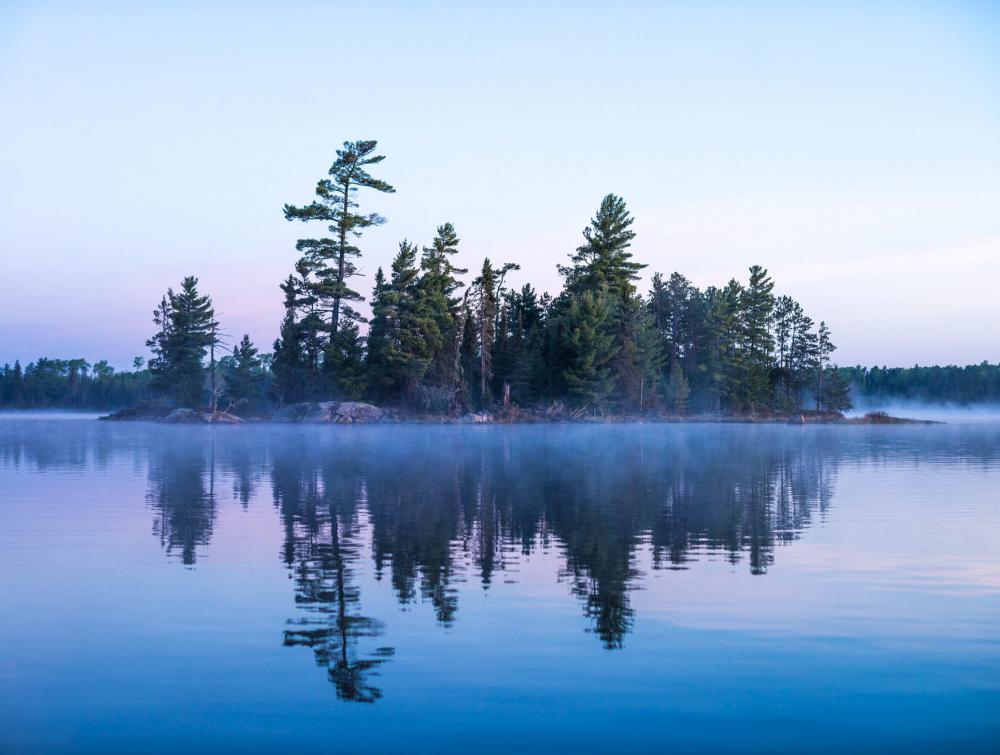Lawsuit challenges mining permits near Boundary Waters Wilderness in Minnesota

Erik Fremstad
The copper mining plan, mineral leases and permits could harm the pristine Boundary Waters Canoe Area watershed, the most-visited wilderness area in the U.S.
WASHINGTON ---- Conservation groups sued the Trump administration today over its decision to renew 13 prospecting permits that could allow Twin Metals to significantly expand its proposed sulfide-ore copper mine at the edge of the Boundary Waters Canoe Area Wilderness in Minnesota.
“The Trump administration has doubled down on pushing a massive, toxic mining district just upstream from one of the most pristine places on the continent,” said Marc Fink, a senior attorney at the Center for Biological Diversity. “This is among the most appalling environmental moves of this science-denying, nature-hating administration. The spectacular Boundary Waters wilderness, with its quiet recreation and its important wildlife habitat, is irreplaceable. We’ll do everything possible to protect it.”
Today’s lawsuit argues that the Bureau of Land Management, in deciding on May 1 to extend the prospecting permits for four more years, failed to consider how Twin Metals’ mine plan, mineral leases and permits could harm the critical resources of the Boundary Waters watershed. The Bureau also failed to consult with the U.S. Fish and Wildlife Service over potential harm to three endangered species and their critical habitat: Canada lynx, gray wolves and northern long-eared bats.
“In 2016 the U.S. Forest Service found that sulfide-ore copper mining in the headwaters of the Boundary Waters posed an unacceptable risk to the integrity of the wilderness,” said Tom Landwehr, executive director of Northeastern Minnesotans for Wilderness. “This relentless push by the Bureau of Land Management puts the Boundary Waters and the thousands of jobs dependent on it at risk. We are opposed not just to the Twin Metals mine, but any sulfide-ore mining in the watershed. This type of mining is not compatible with retaining the pure and wild ecosystem of the area."
The prospecting permits allow Twin Metals to drill holes, build roads, and do other mining exploratory work throughout more than 15,000 acres of Superior National Forest. Altogether the renewed permits extend well beyond the geographic footprint of the proposed mine. A few of the permits overlap parts of it, just upstream from the Boundary Waters’ protected public lands and waterways, and half of the remaining permits extend to the south, along the southeastern shoreline of Birch Lake, and the other half abut miles of the Boundary Waters wilderness border.
“Twin Metals’ permits were improperly extended under cover of an unprecedented public health crisis with no public notice or engagement,” said Alison Flint, senior legal director at The Wilderness Society. “The move represents another benchmark in the Trump administration’s relentless efforts to fast-track mining that would devastate the Boundary Waters’ abundant clean water and beloved wilderness.”
Twin Metals’ mining proposal would cause severe environmental damage to the region’s forests, lakes, rivers and wetlands that lie between Birch Lake and the edge of the Boundary Waters — and to the wilderness itself. The Boundary Waters is America’s most visited wilderness area.
Despite major controversy over the potential for copper-nickel mining in this sensitive area, the Bureau approved Twin Metals’ request to extend the permits without any environmental review, public input or consultation with other agencies.
Today’s lawsuit was filed in U.S. District Court in Washington, D.C., by the Center for Biological Diversity, Northeastern Minnesotans for Wilderness and The Wilderness Society. The U.S. Department of the Interior Board of Land Appeals denied the groups’ May request to halt the Bureau’s decision and any additional mineral exploration while it considered the groups’ administrative appeal.
The Center for Biological Diversity is a national, nonprofit conservation organization with more than 1.7 million members and online activists dedicated to the protection of endangered species and wild places.
Northeastern Minnesotans for Wilderness is the founder and lead organization for Save the Boundary Waters, a campaign to permanently protect the Boundary Waters Canoe Area and keep proposed sulfide-ore copper mines out of its wilderness edge.
The Wilderness Society, founded in 1935, is the leading conservation organization working to protect wilderness and inspire Americans to care for our wild places. With more than one million members and supporters, The Wilderness Society has led the effort to permanently protect 111 million acres of wilderness and to ensure sound management of our shared national lands.
Contacts:
Alison Flint, The Wilderness Society, (720) 647-9491, alison_flint@tws.org
Marc Fink, Center for Biological Diversity, (218) 464-0539, mfink@biologicaldiversity.org
Jeremy Drucker, Northeastern Minnesotans for Wilderness, (612) 670-9650, jeremy@savetheboundarywaters.org
